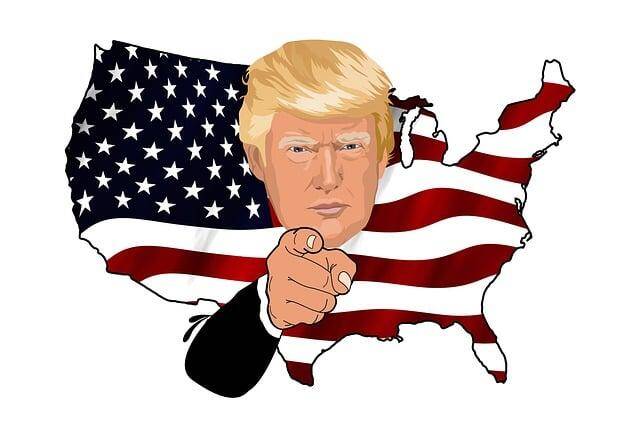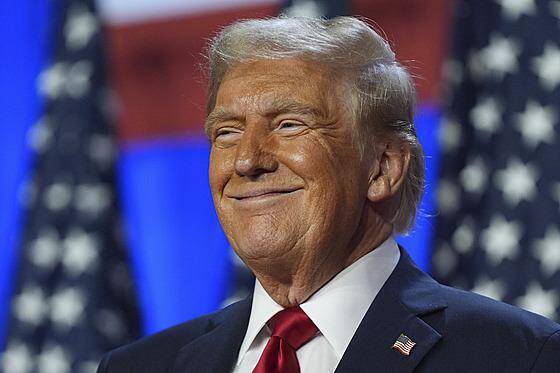In the ever-changing landscape of American politics, few figures elicit as much passion—both fervent support and stark opposition—as Donald John Trump. From his dramatic rise as a billionaire businessman and reality television star to his unprecedented ascent to the presidency, Trump’s journey has been nothing short of theatrical.As a polarizing character, he has become a symbol of deep societal divides, encapsulating the hopes and fears of millions across the nation. In this exploration of Trump’s unfolding saga, we delve into the myriad dimensions of his life and career, examining how his unique blend of charisma, controversy, and challenge continues to shape the political discourse in the United States. Join us as we navigate the intricate tapestry of events, reactions, and implications that define this complex figure, revealing the layers behind the headlines and the enduring impact of his presence on the national stage.
Table of Contents
- The Rise of a Controversial Icon in American Politics
- Navigating the public Perception: media Influence and Misinformation
- Policy Perspectives: Examining Trumps Legacy and Future Implications
- Unifying a Divided Nation: Strategies for Bridging the Political Divide
- Q&A
- Insights and Conclusions
The Rise of a Controversial Icon in American Politics
In recent years, one figure has dominated the American political landscape, stirring fierce debates and passionate followings. This individual, known for his unapologetic style and unfiltered remarks, has transformed the political discourse in ways previously unseen. Supporters credit him with galvanizing a new base of voters through his emphasis on populism,nationalism,and a clear critique of establishment politics,while his critics warn that his approach undermines democratic norms and fosters division.The complexities surrounding his candidacy and presidency highlight an evolving narrative—one where the lines between admiration and opposition blur.
As discussions about his legacy unfold, it becomes essential to examine both the fervent support he has received and the backlash that has ensued. Key factors contributing to his rise include:
- Media Presence: His adept use of social media platforms has allowed him to reach and resonate with millions.
- Populist Messaging: By positioning himself as an outsider,he has appealed to those feeling overlooked by customary politicians.
- Controversial Policies: His stances on immigration and trade have sparked both fervent support and vehement opposition.
| Attribute | Supporters’ View | Critics’ View |
|---|---|---|
| Leadership Style | Decisive and bold | Impulsive and erratic |
| Political Outsider | Breath of fresh air | Lacks political experience |
| Impact on GOP | Reinvigorated the party | Created deep rifts |

Navigating the Public Perception: Media Influence and Misinformation
The complex persona of Donald Trump has consistently collided with the media landscape, shaping public perception in unpredictable ways. Throughout his presidency and beyond, Trump has positioned himself as a master of media manipulation, employing both traditional platforms and social media to communicate directly with his base. This unfiltered approach has lead to a fragmented media environment, where echo chambers thrive, enabling partisan narratives to flourish. The influence of sensational news stories and the virality of social media posts often overshadow factual reporting, resulting in a populace that is misinformed or selectively informed. In such a context, the lines between truth and hyperbole blur, complicating the relationship between the public and the facts they consume.
In examining the role of misinformation, it becomes essential to recognize its impact not just on individual perspectives, but also on broader societal discourse. Misinformation around controversies—whether regarding policy decisions, personal conduct, or public statements—has led to increased polarization. Factors contributing to this phenomenon include:
- Viral Social Media Content: False narratives can spread rapidly, reaching millions before corrections are made.
- Framing and Language: The way information is presented can influence perceptions dramatically, reinforcing biases.
- trust in Media Sources: With declining trust in traditional media outlets, alternative platforms gain traction, often perpetuating misinformation.
The following table illustrates key events and their associated media narratives surrounding Trump, highlighting how varying interpretations have influenced public sentiment:
| Event | Media Narrative | Public Reaction |
|---|---|---|
| Travel Ban (2017) | National Security vs. Discrimination | Divided Opinion |
| Impeachment Trials | partisan Politics vs. Accountability | Increased Polarization |
| COVID-19 Response | Leadership Failure vs. Crisis Management | Criticism and Support |

Policy Perspectives: Examining Trumps Legacy and Future Implications
As the dust settles on Donald Trump’s presidency,a tapestry of policy outcomes and political maneuvers emerges,influencing current and future political landscapes. His administration’s approach to issues such as immigration, trade, and taxation generated a mixture of fervent support and intense opposition, divided sharply along partisan lines.Key takeaways from this period include:
- Tax Reform: The Tax Cuts and Jobs Act of 2017 aimed to stimulate economic growth but faced criticism for benefiting the wealthy disproportionately.
- Immigration Policy: Initiatives like the travel ban and family separation drew both acclaim and condemnation, with lasting effects on public sentiment.
- Foreign Relations: Trump’s unconventional diplomacy shifted long-standing alliances and instigated dramatic changes in global engagement.
The implications of Trump’s legacy are likely to play a pivotal role in shaping future political strategies and electoral outcomes. The fracturing of traditional voter bases, coupled with a rise in populist sentiment, signals a potential change within the Republican Party and beyond. An examination of the shifting dynamics reveals a range of possible trajectories:
| Trend | Possible Outcome |
|---|---|
| Shift to populism | Emergence of new leaders capitalizing on anti-establishment sentiments |
| Continuing Polarization | Deepening divide leading to more extreme political factions |
| Policy reversal | Potential rollback of key Trump-era policies by future administrations |
Unifying a Divided Nation: Strategies for Bridging the Political Divide
As the political landscape becomes more fragmented, the need for effective communication and understanding among divergent groups has never been more critical. One potential strategy to alleviate tensions is fostering dialog between opposing viewpoints. Town hall meetings, moderated debates, and community forums can provide a platform for individuals to express their opinions and, importantly, listen to those of others. Initiatives that encourage empathetic listening—where one prioritizes understanding over rebuttal—can transform adversarial discussions into opportunities for collaboration. Engaging in open conversations can help demystify the motivations and fears of those on the other side, turning unyielding lines into bridges of mutual understanding.
Another vital approach involves promoting a shared identity that transcends political affiliations. this can be accomplished through campaigns that highlight common values and goals, such as civic duty, community service, and the importance of education. Establishing events or programs which celebrate these shared ideals can definitely help people from diverse backgrounds to unite around a common cause. additionally, utilizing social media to amplify positive narratives and success stories of collaboration can engage a wider audience and reduce polarization. Encouraging grassroots movements that prioritize unity over division will empower communities to reclaim their agency and move towards a more cohesive societal framework.
| Strategy | Description | Potential Impact |
|---|---|---|
| Fostering Dialogue | Create venues for open conversation | Enhances understanding and reduces hostility |
| Empathetic Listening | Encourage active listening in discussions | Builds trust and rapport |
| Shared Identity Campaigns | Highlight common goals and values | Unifies diverse groups towards a common purpose |
| Grassroots Movements | Mobilize communities for collaborative projects | Strengthens local ties and mutual respect |
Q&A
Q: Who is Donald John Trump? A: Donald John Trump is a businessman, television personality, and politician who served as the 45th president of the United States from January 2017 until January 2021. Known for his distinctive communication style and business acumen, Trump has become one of the most polarizing figures in American politics.
Q: What were some key milestones in Trump’s early life? A: Born on June 14, 1946, in Queens, New York City, Trump attended fordham University before transferring to the Wharton School of the University of Pennsylvania, where he earned a degree in economics. He joined his family’s real estate business, eventually transforming it into a prominent name in the industry and launching various ventures, including the Miss Universe pageant and the popular reality show “The Apprentice.”
Q: What motivated Trump to run for president? A: Trump’s presidential campaign was fueled by a mix of personal ambition and a desire to impact American policy. His outsider status appealed to many voters dissatisfied with traditional politicians, and he capitalized on themes of nationalism, economic revival, and an “America First” agenda.
Q: How did Trump’s political rhetoric differ from previous presidents? A: Trump’s style of communication was marked by directness, frequently enough eschewing political correctness and traditional diplomatic language. He frequently utilized social media, particularly Twitter, to bypass traditional media channels, engage directly with his supporters, and articulate his views, which resonated with many while sparking notable controversy.
Q: What were some of the major policies implemented during Trump’s presidency? A: Notable policies included significant tax reform, the withdrawal from the Paris Climate Agreement, the renegotiation of trade deals like NAFTA (replaced by USMCA), and a focus on immigration enforcement, which included attempts to construct a wall along the U.S.-Mexico border. His administration also saw the appointment of three Supreme Court justices, shaping the judicial landscape for decades to come.
Q: How did Trump’s presidency impact American society? A: Trump’s presidency intensified the existing political and cultural divides in the U.S. Supporters lauded his business-oriented approach and conservative judicial appointments, while critics decried his rhetoric, handling of issues like racial tensions, and response to the COVID-19 pandemic. This polarization sparked widespread protests, movements, and a passionate engagement in political discourse among the populace.
Q: What were the circumstances surrounding Trump’s impeachment? A: Trump was impeached twice during his presidency—first in December 2019 on charges of abuse of power and obstruction of Congress related to his dealings with Ukraine, and again in January 2021 for incitement of insurrection following the Capitol riots. Both impeachments highlighted the deeply entrenched partisan divides in Congress and the nation.
Q: How has Trump remained relevant in American politics after his presidency? A: After leaving office, Trump maintained a significant influence over the Republican Party and continued to engage his base through rallies, endorsements, and a strong social media presence. His potential candidacy in future elections has kept him a focal point in discussions about the GOP’s direction and the broader political landscape.
Q: What legacy is Donald Trump likely to leave behind? A: Trump’s legacy is likely to be a complex and contested one. Supporters may view him as a protector of conservative values and a disruptor of the political status quo, while detractors could see him as a divisive figure undermining democratic norms. His impact on future political discourse, party dynamics, and public policy will likely be debated for years to come.
Insights and Conclusions
In the grand tapestry of American history, few figures have woven themselves into the fabric of national discourse quite like Donald John Trump.From his boisterous entry into the political arena to his tumultuous tenure in the White house, Trump embodies a phenomenon that transcends mere politics—he has ignited fervor, invoked ire, and provoked endless debate. As we continue to navigate the complexities of this unfolding saga, it is essential to recognize the multifaceted nature of Trump’s impact on the political landscape and public sentiment alike.His legacy is not solely defined by policies or controversies but rather by the conversations he has sparked and the divisions he has illuminated. Looking forward, the narrative of Donald Trump remains a living, breathing entity—an ongoing exploration of the interplay between leadership, identity, and the American psyche. In examining his story, we find not just a chapter in our history books, but also a reflection of our collective hopes, fears, and aspirations. As the saga continues, one thing is certain: trump’s influence will resonate for years to come, challenging us to confront the very essence of what it means to be united or divided in a nation still searching for its path forward.






